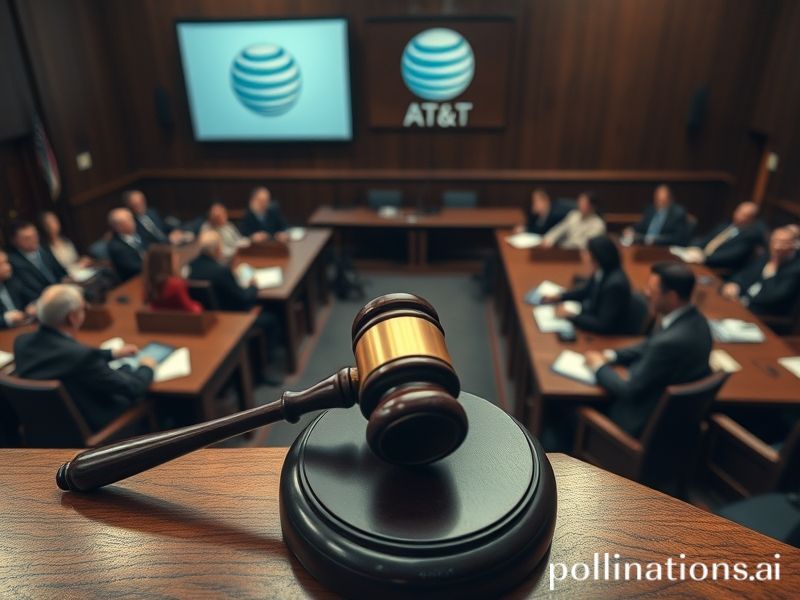AT&T’s Billion-Dollar Oopsie: Why the World’s Watching Their Lawsuit Settlement
**AT&T’s Billion-Dollar Oopsie: Why the World’s Watching Their Lawsuit Settlement**
Alright, folks, grab your popcorn because we’re diving into the latest drama that’s got the internet buzzing like a hive of angry bees—AT&T’s billion-dollar lawsuit settlement. Yes, you read that right. Billion. With a B. This isn’t just any old legal tussle; it’s a full-blown spectacle that’s got everyone from tech geeks to casual scrollers glued to their screens. But why, you ask? Let’s break it down.
### The Plot Thickens: What’s the Big Deal?
AT&T, the telecom giant that’s been around since the days of rotary phones, found itself in hot water after a class-action lawsuit alleged that the company was overcharging customers for data usage. The lawsuit claimed that AT&T was throttling data speeds for unlimited plan users, effectively forcing them to upgrade to more expensive plans. And get this—the company allegedly did this without clearly informing customers. Talk about a sneaky little data caper!
After years of legal back-and-forth, AT&T finally agreed to a settlement that could cost them up to $88 million. That’s a lot of zeroes, folks. But here’s the kicker: the settlement isn’t just about the money. It’s about the principle. It’s about holding corporations accountable for their actions, especially when those actions affect millions of people.
### Cultural Context: The Internet’s Love for a Good David vs. Goliath Story
Let’s be real—we all love a good underdog story. And what’s more underdog than a bunch of regular folks taking on a telecom giant? The internet has always had a soft spot for David vs. Goliath narratives, and this lawsuit is no exception. Social media platforms have been buzzing with discussions about corporate accountability, consumer rights, and the power of collective action.
But it’s not just about the money. It’s about the message. This settlement sends a clear signal to other corporations: if you mess with your customers, you might just find yourself in a world of legal trouble. And in an era where trust in big corporations is at an all-time low, that’s a big deal.
### Social Impact: The Ripple Effect
The ripple effect of this settlement is already being felt. For one, it’s sparked a conversation about data privacy and transparency. Consumers are becoming more aware of their rights and are demanding better from the companies they do business with. And let’s not forget the impact on the tech industry as a whole. Other telecom companies are likely taking note and re-evaluating their own practices to avoid ending up in a similar situation.
But perhaps the most significant impact is the empowerment of consumers. This lawsuit shows that when people come together, they can make a difference. It’s a reminder that the collective voice of the people can be a powerful force for change.
### Why This Topic is Significant
So, why is this settlement trending globally? Because it’s more than just a legal case. It’s a cultural moment. It’s a reminder that in a world dominated by big corporations, the little guy can still fight back. It’s a testament to the power of collective action and the importance of holding corporations accountable.
And let’s not forget the sheer scale of the settlement. $88 million is no small change. It’s a clear indication that the courts are taking consumer rights seriously. And in an era where data is the new oil, that’s a big deal.
### Conclusion: The Ball’s in Your Court, Corporations
As we wrap up this saga, one thing is clear: the AT&T lawsuit settlement is more than just a news story. It’s a cultural phenomenon that’s sparking conversations about corporate accountability, consumer rights, and the power of collective action. And as we move forward, it’s a reminder that the ball is in the court of corporations to treat their customers with respect and transparency.
So, here’s to the little guy. Here’s to the power of the people. And here’s to a future where corporations think twice before pulling a fast one on their customers. Because in the end, the internet never forgets—and neither do we.







